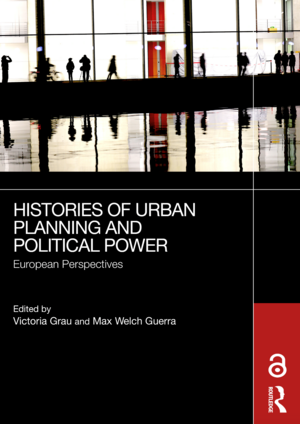
Histories of Urban Planning. European Perspectives
Edited By Victoria Grau, Max Welch Guerra
London/New York, Routledge 2024
232 Seiten
ISBN: 9781003475224
Die englischsprachige Publikation ist via OpenAccess frei zugänglich. Die gedruckte Fassung erscheint am 10. Juni 2024.
weitere Informationen auf der Webseite des Verlags
ABSTRACT
Urban planning has always been a preeminent instrument of political power. In this volume, contributions from Europe and Latin America provide insight into the functions of planning under very different political and societal constellations over the last hundred years: dictatorships, parliamentary democracies, and illiberalism; capitalism and state socialism; state interventionism and neoliberalism; societies in times of peace and societies marked by colonial, civil, world, or cold wars.
The dictatorships of the 1920s and 1930s made extensive use of the potential of planning for economic growth, for brutal repression, but also for the integration of certain population groups and as an effective means of propaganda. The legacy of these dictatorships still characterizes many European cities today and confronts planning with complex tasks. Dictatorial state socialism planned to establish a new social order with a particular technocratic rationality, which did not, however, cancel completely the tendential autonomy of the professional planning sphere. Parliamentary democracies and illiberal regimes have developed specific new practices of using planning to rebuild cities in the interests of neoliberal economic growth and populistic legitimization of power.
Histories of Urban Planning and Political Power takes the next steps in significantly expanding our understanding of planning and politics. The book will be of interest to students and scholars of urbanism, urban/town planning, spatial planning, spatial politics, urban development, urban policies, and planning history and European history of the 20th century.
